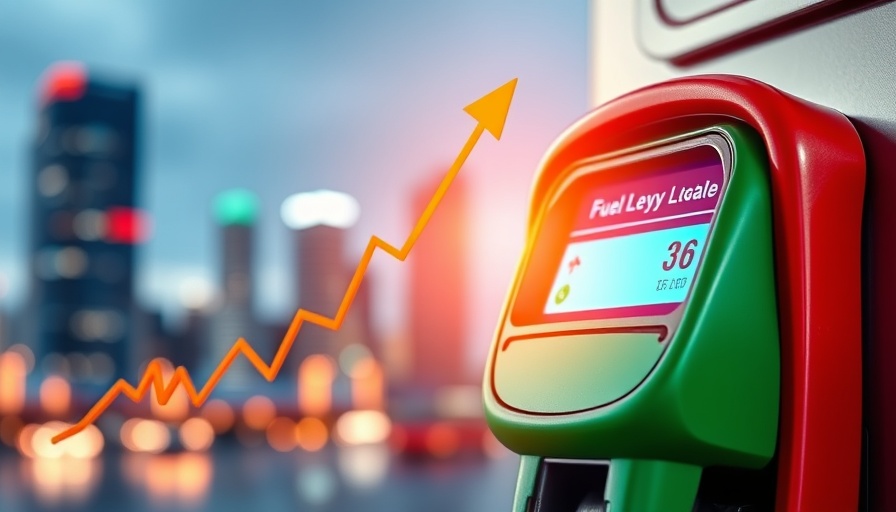
Understanding the Implications of the Upcoming Fuel Levy Increase
The recent announcement from the South African Revenue Service (SARS) regarding the increase in the fuel levy effective from June 4, 2025, has prompted widespread discussions among professionals across various sectors. As outlined in the Budget Speech delivered by the Minister of Finance on May 21, 2025, the general fuel levy will see an increase of 16 cents per liter for petrol, raising the rate from 385 to 401 cents per liter, and a 15 cents increase for diesel, bringing it from 370 to 385 cents per liter. This marks a significant change in the cost structure for fuel, which will likely resonate throughout the economy.
Economic Ramifications: What to Expect
The upward adjustment of the fuel levy is expected to have a cascading effect on various sectors, particularly transportation and logistics. Analysts predict an increase in costs that businesses will inevitably pass on to consumers through higher prices for goods and services. This could lead to inflationary pressures, particularly in an already challenging economic environment where many households are grappling with the cost of living increases. In light of these circumstances, understanding how to navigate this impending change is crucial for professionals working in sectors affected by fuel costs.
Fuel Levy Increase: A Historical Context
Historically, adjustments to the fuel levy have been a method employed by various governments worldwide to stabilize public finances and fund essential services. However, the decision to increase the fuel levy must balance fiscal needs with economic realities on the ground. The decision taken in South Africa reflects a broader trend seen across multiple nations where discussions surrounding fuel taxation are often contentious. Understanding past governmental fiscal policies may provide insights into the potential long-term impacts of this increase.
Counterarguments: Other Perspectives on the Fuel Levy
While the government emphasizes that increased tax revenues from the fuel levy will enhance public infrastructure and services, critics argue that such increases disproportionately affect lower- to middle-income families. Public transport fares could rise, further straining household budgets. It prompts critical discussions within communities and businesses about how to alleviate the burdens placed on citizens amend public policy in ways that resonate positively with all stakeholders.
Future Predictions: Navigating the Changes
Looking ahead, professionals need to prepare for a landscape where fuel costs are likely to fluctuate, influenced by global crude oil prices, localized energy policies, and international economic shifts. These changes might lead businesses to develop innovative strategies to mitigate rising operational costs. There is potential for increased investments in energy efficiency and alternative energy solutions as companies strive to maintain profitability while adhering to growing expectations for sustainability.
Diverse Perspectives: Stakeholders Weigh In
Various stakeholders, ranging from economists to environmentalists, have different views on the fuel levy increase. Economists may highlight the necessity for government funding through taxes, while environmental advocates could view this as an opportunity to promote cleaner energy alternatives. Engaging with multiple perspectives is essential in forming comprehensive views on policy changes and potential societal impacts.
What You Can Do: Practical Insights
As professionals and citizens prepare for the implications of the new fuel levy, several courses of action can be taken. Awareness is the first step; understanding how various sectors will be affected can prepare individuals and businesses to adjust their plans accordingly. Whether through revising budgets, advocating for policy change, or exploring alternative fuel options, proactive engagement is vital in this evolving landscape.
Concluding Thoughts: Engage with the Community
Understanding the implications of the fuel levy increase is essential for making informed decisions. Engaging with community discussions about how to manage the effects of this increase will not only foster dialogue but could also motivate local leadership to advocate for consumer needs in government policy formulation. As the landscape evolves, professionals are called to adapt, advocate, and strategize for a future navigating rising fuel costs.
 Add Row
Add Row  Add
Add 




Write A Comment